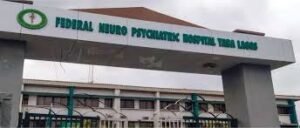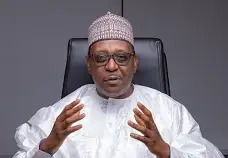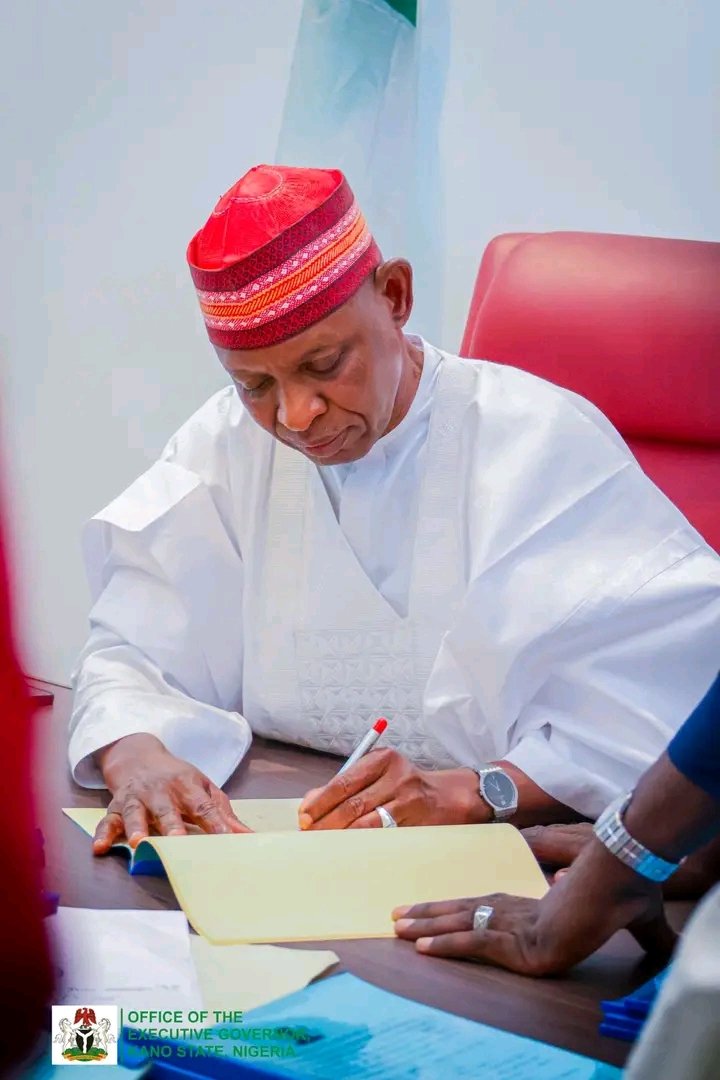In this insightful special report, Korede Abdullah, Africa Health Report’s Southwest correspondent, takes you inside the storm engulfing Nigeria’s oldest psychiatric hospital—where a fierce struggle for leadership has turned quiet wards into tense battlegrounds, pitting doctors against unions, rules against power, and leaving vulnerable patients caught in the middle of a crisis that tests the very soul of mental
A House Divided at Yaba
The century-old Federal Neuro-Psychiatric Hospital, Yaba, once a beacon of mental healthcare in West Africa, now sits at the epicentre of a storm that many staff describe as the most unsettling in its recent history. An institution established in 1907 to heal troubled minds now struggles to steady its own.

“Every corridor is filled with hushed conversations and suspicion. We just want to do our jobs, but how can we focus when the leadership is a battleground?” lamented a psychiatric nurse who has served here for over 15 years while speaking with Africa Health Report (AHR). Many employees say the standoff is sapping morale, with whispers of resignations brewing if the impasse drags on.
Tenure Tussle Triggers Turmoil
Fuelling the current turmoil is the strong demand by the Lagos Chapter of the Nigerian Medical Association (NMA) for the immediate reversal of Dr. Olugbenga Owoeye’s reappointment as Acting Medical Director.
According to Dr. Babajide Saheed, Chairman of NMA Lagos, the Association finds it disturbing that Dr. Owoeye, whose statutory tenure as substantive Medical Director has expired, continues to occupy the seat in acting capacity—an arrangement Saheed described as “an aberration that threatens to erode institutional discipline and stability.”

In a pointed statement, he warned that if due process is trampled underfoot, it would plunge the already fragile hospital into deeper disarray, making it nearly impossible to deliver quality care to vulnerable patients who have no voice in these power games.
Doctors Demand Due Process
Dr. Saheed’s words were laced with frustration and resolve. He stressed that the NMA, as the conscience of the medical profession, will not allow the Federal Ministry of Health to circumvent the laid-down Public Service Rules that govern such appointments.
“Leadership must reflect merit, transparency, and respect for established processes,” he said firmly, reminding the authorities that retaining an expired tenure MD as acting head sets a dangerous precedent that could ripple through other health institutions nationwide.

“We are duty-bound to protect the integrity of our profession and the well-being of patients who rely on this hospital for hope and healing,” Saheed added, warning that anything short of due process would be vigorously resisted.
A Crisis That Could Have Been Avoided
In his press briefing, Saheed pointed out that the situation could have been easily avoided had the Federal Ministry of Health prioritized early succession planning and institutional stability over backdoor arrangements.
He said the Ministry’s failure to appoint the next most senior and competent officer as Acting Medical Director, as clearly stipulated by relevant civil service circulars (SGF.50/S.II/C.2/268), “betrays a blatant disregard for rules that bind us all.”
He further noted that NMA has repeatedly written to the Ministry, urging it to chart a clear, transparent pathway for appointing a substantive Medical Director through a merit-driven process that would insulate the hospital from unnecessary turmoil. “This hospital must not be reduced to a political bargaining chip for favoured candidates,” he stressed.
TUC’s Counterattack and Defence
But while the doctors have dug in their heels, the Lagos State Trade Union Congress (TUC) has mounted a spirited defence of Dr. Owoeye, dismissing the NMA’s accusations as a smokescreen for hidden interests.

Comrade Gbenga Ekudayo, TUC State Chairman—represented by Comrade Kehinde Adegoke—insisted that Owoeye’s reappointment was carried out in line with the same public service rules the NMA claims are being violated.
He accused the Association of trying to hijack the management structure for its own loyalists. “There is no leadership crisis here,” Ekudayo declared during a tense press parley. “What we see is an attempt to frustrate Dr. Owoeye’s progress and the transformative gains we have all witnessed under his watch.”
Reforms or Rupture?
The TUC points to what it calls Dr. Owoeye’s “undeniable track record”: the long-overdue promotion of staff across cadres, infrastructural upgrades including new wards and equipment, and most controversially, the approval and implementation of consultancy status for hospital pharmacists—a policy that had stalled for years.
“Why should this hospital be an exception when the same policy works smoothly in other federal institutions?” Adegoke asked, suggesting that opposition to these reforms is at the root of the pushback against Owoeye. Yet within the hospital, not everyone is convinced.
A senior administrator, who would not like his name mentioned, claimed that while there have been improvements, “the top-level battles distract from more pressing challenges like underfunding, poor staff welfare, and patients slipping through the cracks.”
Patients Caught in the Crossfire

Meanwhile, patients and their families watch this institutional theatre unfold with dismay. Many are unsure who to believe or what to expect next. A 45-year-old patient recovering from severe depression said he had overheard staff debating whether the crisis would delay appointments and drug supply.
“I don’t want to get worse because people upstairs are fighting,” he said quietly. In the waiting area, a mother who brought her teenage son for follow-up treatment shook her head in frustration: “It feels like we are invisible. Nobody is talking about the patients, only politics and positions.”
Shadows of Old Probes
The controversy swirling around Dr. Owoeye today echoes shadows from the past. In August last year, the House of Representatives Public Accounts Committee had summoned him over glaring questions surrounding the hospital’s spending and financial practices.
Chairman Hon. Bamidele Salam did not mince words as he pressed Owoeye to account for contract sums totalling N422.3 million and the spending of N50.3 million on staff training—a probe that exposed systemic gaps in financial management.
Despite his explanations, the committee ruled the violations amounted to “gross breaches” of Nigeria’s financial regulations, warning that excuses would no longer be tolerated. The incident dented confidence among staff, some of whom now see the tenure extension saga as proof that accountability has yet to take root.
Exodus, Exhaustion and Fear of Collapse
For workers who keep the hospital’s 500-bed facility running, the crisis feels like salt on an old wound. With the ‘japa’ syndrome luring away psychiatrists, nurses, and consultants every month, the institution struggles to replace lost expertise fast enough. Budget delays choke vital upgrades, while the mounting leadership uncertainty only worsens low morale.

“If we lose more doctors, the wards will be ghost towns,” a consultant psychiatrist said, pleading for swift resolution to avoid the collapse of services that tens of thousands rely on annually.
Senior Doctors Align with NMA’s Position
Meanwhile, this newspaper was able to speak with one of the senior doctors at the hospital who insisted there was nothing more to say beyond the official stance already made public. “Our position remains what the Lagos State NMA Chairman, Dr. Babajide Saheed, has stated,” the doctor said, declining to comment further on the lingering leadership crisis rocking the facility.
The senior doctor, who spoke under strict condition of anonymity, added that many consultants and resident doctors were increasingly worried about the impact of the unresolved crisis on patient care and staff morale. “We don’t want the situation to escalate further. The welfare of our patients is our priority, but the environment must also be conducive for us to work,” he added.
A visit by our correspondent to the embattled Medical Director, CMD, was cut short as he was informed that no interview could hold without a prior appointment. “You will have to make an appointment with the CMD by writing a formal application,” a man at the reception told this reporter. He gave the assurance of a call-back after submitting the application that same day.

However, at the time of filing this report, no response had been received from the hospital’s management. Some staff who spoke off the record said the Medical Director had recently avoided speaking to the press to prevent further inflaming tensions, while insiders hinted that behind closed doors, meetings were ongoing to resolve the dispute in line with the recommendations of the NMA leadership.
The Call for Healing Within
As both the NMA and TUC dig deeper trenches, the crisis at Yaba Neuro-Psychiatric Hospital remains a sobering reminder that leadership disputes in healthcare settings can have far-reaching human costs.

Dr. Saheed closed his statement with an urgent appeal: “Leadership must be based on merit and accountability. We will not fold our arms while the system is manipulated. The health of Nigerians is a sacred responsibility.” For anxious patients and weary staff, only one question matters now: who will heal the hospital that is meant to heal everyone else?



